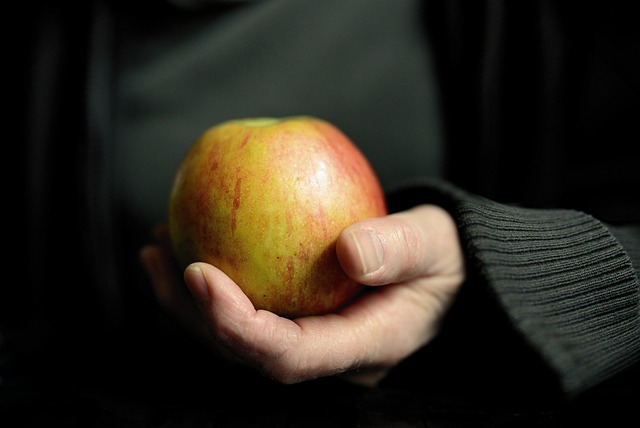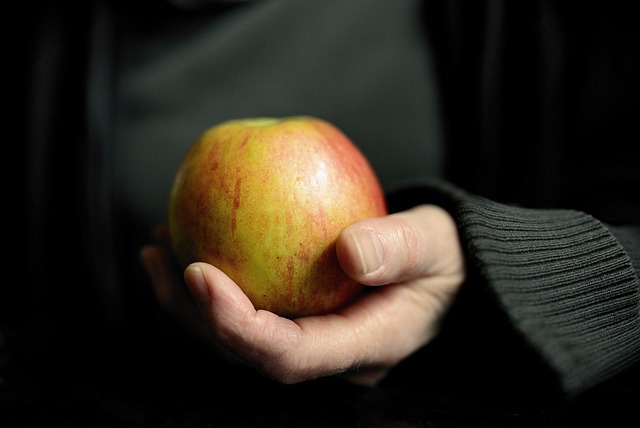6 Nutrient-Packed Seeds to Add to Your Daily Diet
Discover the powerful health benefits of adding seeds like chia, flax, and hemp into your daily meals. Packed with essential nutrients, these tiny superfoods can elevate your nutrition and enhance overall wellness.
Seeds are small but mighty powerhouses of nutrition, offering an easy way to add vital nutrients to your daily diet. By sprinkling these nutrient-packed seeds into meals, you can elevate your health without any hassle. From protein and fiber to antioxidants and essential fats, seeds bring a wide range of benefits, making them essential additions for anyone looking to boost their wellness naturally.

1. Chia Seeds: The Tiny Hydration Booster
Chia seeds are among the most popular superfoods for a reason. These tiny black and white seeds are incredibly versatile and are packed with essential nutrients that benefit the entire body. They are rich in omega-3 fatty acids, which promote heart health by reducing inflammation and lowering cholesterol levels. With a high fiber content, chia seeds also support digestive health, helping to keep you feeling full longer and aiding in weight management.
One of the most interesting features of chia seeds is their ability to absorb water, swelling up to 10 times their original size when soaked. This unique property makes chia seeds an excellent option for hydration and a satisfying addition to smoothies, yogurt, or even water. As they expand, chia seeds create a gel-like texture, making them an ideal ingredient for pudding recipes or as an egg substitute in vegan baking.
Incorporating chia seeds into your diet is easy. You can sprinkle a spoonful over your breakfast cereal, blend them into a smoothie, or mix them with a glass of water for a quick, energy-boosting drink. The nutrient density of chia seeds is remarkable for such a small food, with high levels of antioxidants, calcium, magnesium, and phosphorus, which help strengthen bones and enhance energy levels.
2. Flax Seeds: The Fiber-Packed Nutritional Powerhouse
Flax seeds are another nutritional powerhouse that is often overlooked. Available in two main varieties—brown and golden—these seeds are packed with fiber, lignans, and omega-3 fatty acids. Flax seeds are particularly beneficial for heart health, as the omega-3s they contain can reduce blood pressure and help balance cholesterol levels. In addition, the high fiber content in flax seeds supports a healthy digestive system and aids in controlling blood sugar levels.
One of the unique compounds in flax seeds is lignans, which have antioxidant properties and are believed to help balance hormone levels in the body. Studies have shown that lignans may also reduce the risk of certain cancers, particularly breast and prostate cancer, making flax seeds a potent addition to a cancer-preventative diet.

For the best nutritional benefits, it’s recommended to consume flax seeds ground, as whole flax seeds can pass through the digestive system without being fully absorbed. Ground flax seeds can be mixed into oatmeal, smoothies, or baked goods, enhancing the fiber and nutrient content of your favorite recipes. With its mild, nutty flavor, flax seed is an easy addition that not only boosts nutrition but also supports overall health and wellness.
3. Hemp Seeds: Protein-Rich and Heart-Healthy
Hemp seeds, also known as hemp hearts, are gaining popularity for their impressive nutritional profile. These soft, nutty seeds are rich in protein, making them an ideal choice for those following a vegetarian or vegan diet. In fact, hemp seeds contain all nine essential amino acids, making them a complete source of protein—a rare feature in plant-based foods.
Hemp seeds are also packed with healthy fats, particularly omega-6 and omega-3 fatty acids in a balanced ratio, which is important for heart health. These fats can help reduce inflammation, support cognitive health, and improve skin health, giving your body what it needs to thrive. Additionally, hemp seeds provide a good amount of vitamin E, magnesium, and potassium, all of which are beneficial for cardiovascular health.
With their creamy texture and mildly nutty flavor, hemp seeds can be added to a wide range of foods. Sprinkle them over salads, yogurt, or oatmeal for a protein boost, or blend them into smoothies for a rich, creamy texture. The versatility of hemp seeds makes them a convenient and nutritious addition to your daily routine.
4. Pumpkin Seeds: Nutrient-Dense Immune Boosters
Pumpkin seeds, also known as pepitas, are packed with vitamins and minerals that support immune health and energy production. These green seeds are rich in magnesium, which plays a crucial role in muscle function, blood pressure regulation, and overall energy. Pumpkin seeds also contain high levels of zinc, an essential mineral that supports the immune system and helps protect against inflammation.
In addition to magnesium and zinc, pumpkin seeds are a good source of antioxidants and healthy fats. Their antioxidant content helps combat oxidative stress in the body, which is linked to aging and various chronic diseases. Eating pumpkin seeds regularly has been associated with improved heart health, prostate health, and even better sleep, thanks to their natural content of tryptophan, an amino acid that promotes relaxation.
Pumpkin seeds are an easy, crunchy addition to a range of dishes. Try adding them to salads, yogurt, or homemade granola for a satisfying, nutrient-dense snack. Alternatively, sprinkle pumpkin seeds over roasted vegetables or incorporate them into baking recipes for an added crunch.

5. Sunflower Seeds: Packed with Vitamin E and Antioxidants
Sunflower seeds are widely known for their high vitamin E content, an essential antioxidant that helps protect cells from damage caused by free radicals. Vitamin E also promotes skin health, supports immune function, and can play a role in reducing inflammation. With their mild nutty flavor, sunflower seeds can easily complement various foods, from salads to baked goods.
These seeds are also rich in B vitamins, including folate, which is essential for cellular growth and is particularly beneficial for pregnant women. Additionally, sunflower seeds contain magnesium, protein, and healthy fats, contributing to their heart-healthy profile. Their natural anti-inflammatory properties make them an excellent option for those seeking to manage chronic inflammation or arthritis.
Adding sunflower seeds to your daily diet is simple. Sprinkle them on your salad, mix them into your oatmeal, or enjoy them as a standalone snack. For an extra nutritional boost, try incorporating sunflower seed butter into smoothies or using it as a spread.
6. Sesame Seeds: Tiny Seeds with Big Benefits
Sesame seeds may be small, but they’re packed with calcium, iron, and other important minerals. Known for their high antioxidant content, these seeds also contain lignans, which support hormone balance and have anti-inflammatory effects. Rich in both monounsaturated and polyunsaturated fats, sesame seeds contribute to improved heart health and may help lower cholesterol levels.
Sesame seeds are commonly used in Asian and Middle Eastern cuisines, adding a nutty flavor and crunchy texture to a variety of dishes. You can sprinkle them over salads, rice dishes, or roasted vegetables for extra flavor. Tahini, a paste made from sesame seeds, is also a delicious way to enjoy the benefits of these seeds. Try adding tahini to dressings, dips, or sauces to boost both flavor and nutritional value.
Incorporating these six nutrient-packed seeds into your daily diet can lead to remarkable health benefits. Whether you sprinkle them on top of your favorite meals, blend them into smoothies, or bake them into snacks, these tiny superfoods offer a wealth of nutrition that can make a big difference in your wellness journey.

